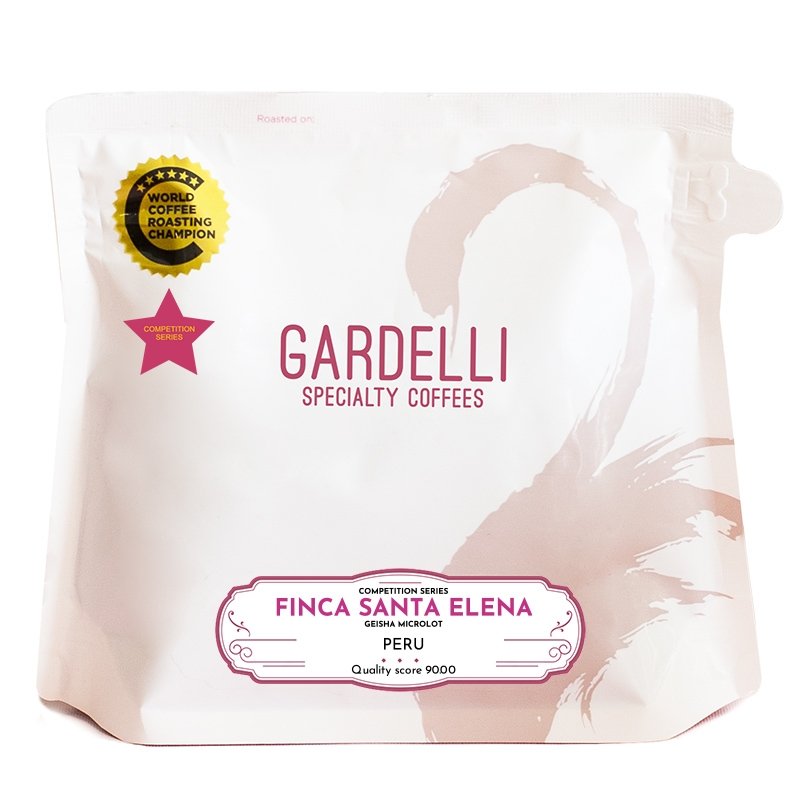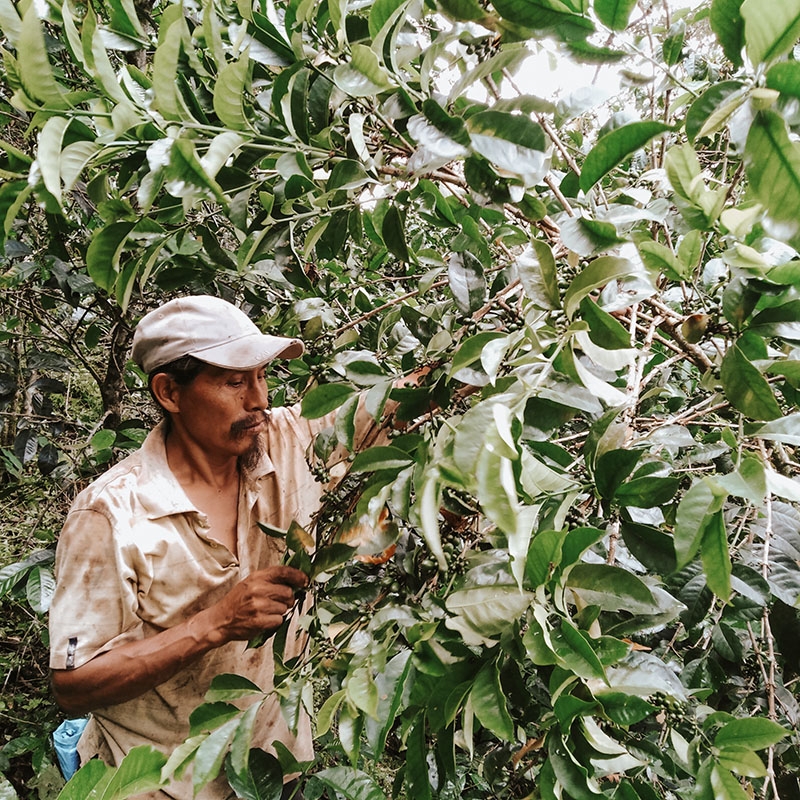





Peru
250g
*Competition Series*
QUALITY SCORE: 90.00
Geisha Microlot
Cup Notes
Lemongrass / Grapefruit / Almond / Chocolate
Suggested for espresso and filter
when we roast
We freshly roast to order all coffees on Monday, Wednesday and Friday (excluding national holidays), and ship the same day! Cut-off time is 11:59pm (UTC+1) of the day before the roast day. *We only ship whole beans*
Finca Santa Elena was founded by David Guizado Centeno’s father who migrated from the Apurimac region in the 1960’s. He came with a group of friends to colonise the area of El Palomar in Chanchamayo, Junin.
David’s father planted 10 hectares of coffee. The family have been working hard to increase the quality of the coffee ever since. David has a degree in Agronomy, and producing excellent coffee has become his life’s passion.
As elsewhere in many coffee-producing countries, Gesha is novel and rare in Peru. Thanks to David’s utmost attention to detail, the resulting cup has an outstanding profile and quality.

Rare, exclusive and fetching a heavy price tag, Gesha is often associated with coffees from Panama, while, in fact, the cultivation of the Gesha varietal began there as late as in the 1960s.
Gesha is an original variety of coffee that was discovered in the 1930s in the mountains around the Southwestern town of Gesha, Ethiopia. Gesha trees grow tall and can be distinguished by their beautiful elongated leaves. The quality of this coffee can be drastically improved when grown at extremely high elevation.
The Geisha revolution brought about an intense search for Geisha among coffee buyers and a primal pilgrimage to Ethiopia to find the source of that flavor. The roads those buyers traveled brought them in a wood in far western Ethiopia near a small town called Gesha in the forests where coffee was born and still grows wild.
Gesha 1931 comes from this place.
Its name reflects the place and year it was collected by scientists who fanned out on a research expedition in Ethiopia to catalogue its coffee varieties.

Washed coffees showcase solely the bean. They let you taste you what’s on the inside, not the outside. Washed coffees depend almost 100% on the bean having absorbed enough natural sugars and nutrients during its growing cycle. This means the varietal, soil, weather, ripeness, fermentation, washing, and drying are absolutely key.
Washed coffees reflect both the science of growing the perfect coffee bean and the fact that farmers are an integral part of crafting the taste of a coffee bean. When looking at washed coffees, it becomes apparent that the country of origin and environmental conditions play a vital role in adding to the flavour.
During wet processing, the pulp (i.e.the exocarp and a part of the mesocarp) is removed mechanically. The remaining mesocarp, called mucilage, sticks to the parchment and is also removed before drying. During this process, the sugars present in the mucilage are removed through natural fermentation or mechanical scrubbing. Mucilage is insoluble in water and clings to parchment too strongly to be removed by simple washing. Mucilage can be removed by fermentation followed by washing or by strong friction in machines called mucilage removers. Fermentation can be done by stacking the coffee outside or placing it under water and allowing nature to take its course. After the sugars are removed, the beans then can be taken through a secondary washing to remove any additional debris, or taken immediately to the beds for drying.
